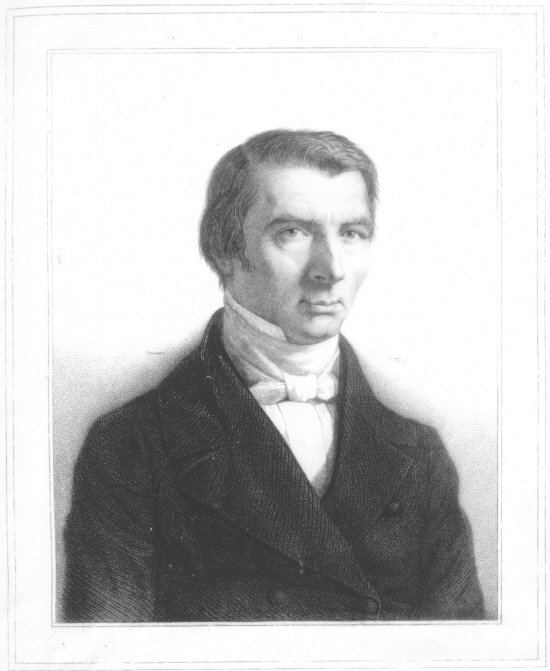Liberty Matters
Bastiat on Efforts and Satisfactions

Many thanks to Joe Salerno for tickling me on the Bastiat's value theory as a precursor of Mises's value theory. Indeed, the commonality between the two does not result from Bastiat's theory being "existentially bound up with something." Rather, the common point is that they are both existentially bound up with choice and exchange. In other words, for Bastiat (as for Menger and Mises), value is not a substantive quality of an economic good. It is not something that is inherent in or intrinsic to any one good. Rather, it is a relationship between one good and another good, and with respect to one (Mises) or two (Bastiat) human beings. This relationship springs from choice (Mises) or from exchange (Bastiat). This relational conception of value is an important continuity from Bastiat to Mises, despite all the important differences in details.
Now the shortcomings of Bastiat's value theory are obvious to anyone familiar with Austrian economics. In my previous post I mentioned the ambiguity of the term "service" and the absence of any element of marginal value. Bastiat's theory is also deficient in that it posits a fictitious equality of value between exchanged objects. (S ee Richman 2012.) And it gives no explanation of the causes of value. In his eyes, values (in the sense of market exchange ratios) are "primitive" realities, to borrow a term from contemporary philosophy. There is nothing more fundamental from which they result, contrary to Menger's theory in which market prices result from the interplay of subjective value judgments.[73]
However, these shortcomings must be seen in the light of two circumstances.
The first one, the crucial one, is that Bastiat's theory of value is just one-half of a general theory of efforts (causes) and satisfactions (consequences). The other half of this general theory of efforts and satisfactions is Bastiat's theory of gratuitous goods. These two elements must always be seen in conjunction. In Bastiat's eyes, value theory and the theory of gratuitousness are both needed to explain the benefits resulting from production, the division of labor , and exchange.
To work out the nitty-gritty details of this general theory of efforts and satisfactions was the great purpose of Economic Harmonies. The word "gratuitous" is used 159 times in its pages. No economist before him has placed a similar emphasis on gratuitous goods. My former student Dr. Catherine Gbedolo (2015, chap. 1) rightly calls him the father of the economics of gratuitousness.
Second, Bastiat's theory of value is unfinished business. The author's untimely death prevented him from thinking through these difficult questions and from providing a solution as simple, elegant, and clear as the solutions he provided on the countless other topics on which he weighed in with such great success. I think it is no accident that all of the diagrams to which David Hart draws our attention serve to illustrate, in one way or another, the relationship between onerous and gratuitous benefits.
In conclusion, let me add a few comments on a related matter that has come up in the discussion. Donald Boudreaux and David Hart are right on target in highlighting Bastiat's frequent use of nontraditional rhetorical techniques. Story-telling is a stock-in-trade of all teachers and professors. Then there is also his use of dialogue, as in the petition of the candlemakers, in the Soirées de la rue Saint-Lazare, and many other of his writings. Dialogue cuts right to the heart of the matter -- not much need for introductions and transitions. It is a form for the outstanding few, for those with full command of both the subject and the tongue.[74] The problem with the dialogical form is that the reader gets lost if the text is too long. Bastiat usually hit the right balance, using dialogue for shorter texts or passages within a book. If used with circumspection, this is unbeatable.
Endnotes
[73.] One could raise the question whether Menger's theory does not suffer from the same shortcoming. After all, he too did not explain the causes of subjective value. He just tried to trace the causal connection back to the smallest elements accessible to the human mind. But these elements must have causes. Which ones? I think Mises gave a satisfactory answer to this question, by emphasising the distinction between universal and contingent causes. Market prices have contingent and universal causes. The universal ones are called subjective values. But subjective values do not have any universal causes at all, only contingent ones. Therefore, economics, as a science of universal laws of human action, cannot explain the causes of subjective value. Such explanations are the business of historians.
[74.] By the way, Bastiat rose to these heights during the many years of quiet study in his rural home town of Mugron. I mention this for the benefit of the aspiring young economists among us. When Bastiat burst into the Parisian limelight in the 1840s, he had a lot of fuel to burn, so to say, but his intellectual gas station was among the sheep and ducks of the Landes. Great talents are wasted today, as then, by the overemphasis of short-run returns on intellectual investment.
Copyright and Fair Use Statement
“Liberty Matters” is the copyright of Liberty Fund, Inc. This material is put on line to further the educational goals of Liberty Fund, Inc. These essays and responses may be quoted and otherwise used under “fair use” provisions for educational and academic purposes. To reprint these essays in course booklets requires the prior permission of Liberty Fund, Inc. Please contact oll@libertyfund.org if you have any questions.